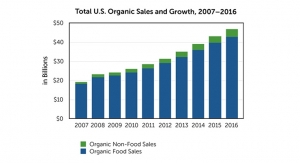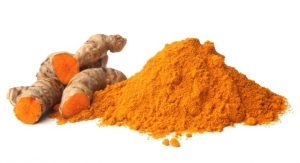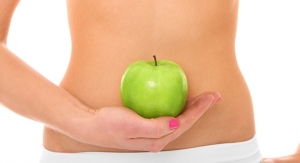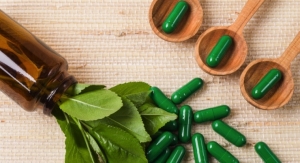09.01.10
To provide guidance to consumers, ConsumerLab.com, White Plains, NY, selected and tested a variety of echinacea supplements for adults and children. It found none of the products contaminated with heavy metals, pesticides or microbes that can occur in some herbs. However, four products lacked sufficient information for consumers to know the amount of echinacea they contain.
ConsumerLab.com categorized the products by the type of echinacea listed, commenting on the amount of clinical support for such preparations. Echinacea is among the top selling herbal supplements, with sales up 7% in 2009 to $132 million, according to Nutrition Business Journal (NBJ). While there are three species of echinacea used medicinally, Echinacea purpurea is the most commonly used in clinical trials, with preparations typically consisting of extracts of the above-ground portions (stem, leaf and flower) of the plant. Root preparations with E. angustifolia and E. pallida have also been used with some limited success. However, the chemical constituents responsible for echinacea’s effects have not been well established. ConsumerLab.com found enormous variation in ingredients among products reviewed, and listed daily amounts of echinacea ranged from 25 mg to more than 1600 mg for extracts, and to as much as 3600 mg for dried herb powders.
According to Mark Blumenthal, founder and executive director of the American Botanical Council, “Of all of the popular herbs in the U.S. market, the clinical research on echinacea is probably the most challenging to interpret due to the range of preparations used, yielding positive as well as negative results. However, the research does support the use of certain echinacea preparations for either prevention or treatment of upper respiratory symptoms associated with colds and flus.”
In another test of supplements designed to enhance muscle strength and recovery, ConsumerLab.com found quality problems with two creatine supplements (one of which contained more degradation compound than actual creatine) and one branched-chain amino acid (BCAA) supplement. Several other creatine and BCAA supplements passed quality testing.
ConsumerLab.com also found problems with creatine in liquid form—likely due to poor stability. These products were contaminated with creatinine, a breakdown product of creatine. One of these contained more than twice as much contaminant as actual creatine, delivering a significantly lower amount of creatine than is typically used. The amount of contaminant in the other product equaled 7% of the amount of creatine it contained. To pass testing, ConsumerLab.com required that creatinine represent no more than 0.1% of the amount of creatine in a product. Among BCAA products tested, one was found to provide a slightly lower amount (86%) of isoleucine than claimed.
In a third review, ConsumerLab.com found that five of 11 ginseng supplements tested contained less ginseng than expected from their labels or were contaminated with lead and/or pesticides. ConsumerLab.com has reported problems with the quality of ginseng supplements since 2000. Ginseng is a popular herb with U.S. sales last year of $83 million according to NBJ. “Consumers need to be wary of the quality of ginseng supplements,” said Tod Cooperman, MD, president of ConsumerLab.com. “People should also recognize that there is enormous variation in the amount of ginsenosides—key ginseng compounds—in marketed supplements. We found most products to provide approximately 10 to 40 mg of ginsenosides per day, but some yielded much higher amounts, including one that delivered a whopping 304 mg. We are not aware of human studies with the higher amounts. The effects might certainly differ from one product to another.”
ConsumerLab.com categorized the products by the type of echinacea listed, commenting on the amount of clinical support for such preparations. Echinacea is among the top selling herbal supplements, with sales up 7% in 2009 to $132 million, according to Nutrition Business Journal (NBJ). While there are three species of echinacea used medicinally, Echinacea purpurea is the most commonly used in clinical trials, with preparations typically consisting of extracts of the above-ground portions (stem, leaf and flower) of the plant. Root preparations with E. angustifolia and E. pallida have also been used with some limited success. However, the chemical constituents responsible for echinacea’s effects have not been well established. ConsumerLab.com found enormous variation in ingredients among products reviewed, and listed daily amounts of echinacea ranged from 25 mg to more than 1600 mg for extracts, and to as much as 3600 mg for dried herb powders.
According to Mark Blumenthal, founder and executive director of the American Botanical Council, “Of all of the popular herbs in the U.S. market, the clinical research on echinacea is probably the most challenging to interpret due to the range of preparations used, yielding positive as well as negative results. However, the research does support the use of certain echinacea preparations for either prevention or treatment of upper respiratory symptoms associated with colds and flus.”
In another test of supplements designed to enhance muscle strength and recovery, ConsumerLab.com found quality problems with two creatine supplements (one of which contained more degradation compound than actual creatine) and one branched-chain amino acid (BCAA) supplement. Several other creatine and BCAA supplements passed quality testing.
ConsumerLab.com also found problems with creatine in liquid form—likely due to poor stability. These products were contaminated with creatinine, a breakdown product of creatine. One of these contained more than twice as much contaminant as actual creatine, delivering a significantly lower amount of creatine than is typically used. The amount of contaminant in the other product equaled 7% of the amount of creatine it contained. To pass testing, ConsumerLab.com required that creatinine represent no more than 0.1% of the amount of creatine in a product. Among BCAA products tested, one was found to provide a slightly lower amount (86%) of isoleucine than claimed.
In a third review, ConsumerLab.com found that five of 11 ginseng supplements tested contained less ginseng than expected from their labels or were contaminated with lead and/or pesticides. ConsumerLab.com has reported problems with the quality of ginseng supplements since 2000. Ginseng is a popular herb with U.S. sales last year of $83 million according to NBJ. “Consumers need to be wary of the quality of ginseng supplements,” said Tod Cooperman, MD, president of ConsumerLab.com. “People should also recognize that there is enormous variation in the amount of ginsenosides—key ginseng compounds—in marketed supplements. We found most products to provide approximately 10 to 40 mg of ginsenosides per day, but some yielded much higher amounts, including one that delivered a whopping 304 mg. We are not aware of human studies with the higher amounts. The effects might certainly differ from one product to another.”



















